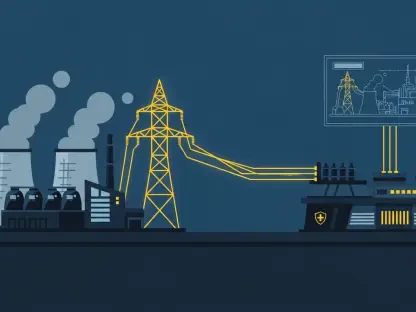In a world grappling with the escalating impacts of climate change, the 30th Conference of the Parties (COP30), held in Belém, Brazil, has taken a historic step by unveiling the Declaration on Information Integrity on Climate on December 12. This pioneering initiative marks a turning point in international climate negotiations, as it positions the battle against misinformation as a fundamental component of addressing the global crisis. Far from being just a technical or political challenge, the climate emergency is deeply intertwined with the need for accurate, science-based information to guide public perception and policy. The declaration unites nations, United Nations agencies, and civil society in a powerful commitment to counter disinformation, recognizing that false narratives—often deliberately spread—undermine critical environmental policies and delay urgent action. This bold step at COP30 underscores a growing realization that tackling misinformation is as essential as reducing emissions in the fight for a sustainable future.
The Urgency of Tackling Climate Misinformation
Misinformation as a Barrier to Action
The pervasive spread of climate misinformation stands as a formidable obstacle to meaningful global action, eroding trust in scientific consensus and stalling support for essential policies. Often fueled by organized campaigns, these false narratives create doubt among the public, making it harder to implement measures like renewable energy transitions or carbon reduction targets. Studies have revealed that many of these disinformation efforts are backed by economic interests, particularly those tied to fossil fuel industries, which stand to lose from strict climate regulations. The deliberate nature of such campaigns amplifies their impact, as they exploit social media and other platforms to reach vast audiences with misleading claims. This systemic barrier not only delays critical interventions but also fractures the societal consensus needed to address a crisis of this magnitude, highlighting why COP30’s declaration is a timely and necessary response to a deeply rooted problem.
Beyond the immediate effects on policy, misinformation also distorts public understanding of climate solutions, often portraying them as ineffective or economically disastrous. This skewed perception hinders individual action, as people may feel helpless or skeptical about contributing to broader efforts. The economic motivations behind disinformation are compounded by the lack of accessible, trustworthy information to counter these narratives, leaving many communities vulnerable to manipulation. Recent research underscores that the scale of this issue is global, with coordinated efforts targeting both developed and developing nations to maintain the status quo of fossil fuel dependency. COP30’s focus on information integrity aims to dismantle these barriers by promoting transparency and ensuring that science, not vested interests, shapes the climate conversation. This approach seeks to rebuild trust and foster a unified front against a challenge that thrives on division and doubt.
Evolving Tactics of Disinformation
Disinformation surrounding climate change has undergone a significant transformation, shifting from outright denial to more insidious strategies that subtly undermine progress. In the past, skeptics might have rejected the existence of climate change altogether, but current tactics are far more nuanced, often focusing on discrediting viable solutions like green technologies or minimizing the severity of environmental impacts. Studies from regions like Brazil highlight this evolution, showing how narratives now aim to confuse rather than outright deny, making it harder for the public to discern fact from fiction. These sophisticated approaches exploit gaps in digital literacy and the rapid spread of information online, ensuring that misleading ideas gain traction before they can be debunked. COP30’s declaration recognizes this growing complexity and calls for equally dynamic responses to match the cunning of modern disinformation campaigns.
This shift in tactics demands a deeper understanding of how disinformation operates within specific cultural and regional contexts, as narratives are often tailored to exploit local concerns or economic fears. For instance, in some areas, false claims about job losses due to climate policies overshadow the potential benefits of a green economy, stoking resistance to change. Addressing this requires not just fact-checking but also proactive storytelling that highlights the tangible advantages of climate action. The declaration’s emphasis on strategic communication seeks to counter these subtle attacks by equipping stakeholders with tools to craft compelling, truthful messages that resonate with diverse audiences. By acknowledging the adaptability of disinformation, COP30 sets the stage for a more resilient informational ecosystem, one capable of evolving alongside the threats it faces in an increasingly digital world.
Balancing Information Integrity and Fundamental Rights
Protecting Freedom of Expression
One of the cornerstone principles of COP30’s Declaration on Information Integrity on Climate is the unwavering commitment to safeguarding freedom of expression and access to information, even while combating misinformation. UNESCO, a key voice in this initiative, has emphasized that any measures to govern digital ecosystems or counter false narratives must not infringe upon these fundamental rights. The challenge lies in striking a delicate balance—ensuring that efforts to curb disinformation do not veer into censorship or limit open dialogue. This concern is particularly relevant in an era where digital platforms can amplify both truth and falsehoods at unprecedented speeds, making governance a complex but necessary endeavor. The declaration’s approach prioritizes technical cooperation and training to enhance digital literacy, aiming to empower users to critically evaluate information without restricting their ability to speak freely or access diverse perspectives.
Equally important is the need to maintain public trust in institutions tasked with addressing misinformation, as heavy-handed tactics can alienate communities and fuel further skepticism. UNESCO’s stance advocates for transparent policies that involve multiple stakeholders, ensuring that interventions are seen as protective rather than punitive. This includes fostering partnerships with tech companies to refine algorithms and reduce the spread of harmful content, all while preserving the democratic nature of online spaces. The declaration’s nuanced framework acknowledges that information integrity cannot come at the expense of personal freedoms, as such a trade-off risks undermining the very trust it seeks to build. By embedding these principles into climate negotiations, COP30 sets a precedent for handling misinformation in a way that respects the rights of individuals across the globe, reinforcing the idea that truth and liberty can coexist.
Supporting Vulnerable Voices
The declaration also shines a spotlight on the precarious situation faced by journalists, scientists, and environmental advocates who often risk their safety to communicate climate truths. These individuals are frequently targeted by harassment, threats, or worse, especially when their work challenges powerful interests opposed to climate action. COP30’s initiative urges governments to implement protective measures, ensuring that those on the front lines of climate communication can operate without fear of reprisal. This commitment extends beyond physical safety to include legal and institutional support, creating an environment where speaking out on environmental issues is not only possible but encouraged. Such protection is vital for maintaining a robust flow of accurate information, as these voices are often the most credible sources for communities seeking clarity amidst a sea of misinformation.
In tandem with safety, the declaration stresses the importance of transparency and public access to climate data as foundational elements of trust in environmental discourse. When governments and organizations openly share verifiable information, it empowers citizens to make informed decisions and hold leaders accountable. This access also serves as a counterweight to disinformation, providing raw, unfiltered facts that can be cross-referenced against misleading claims. COP30’s focus on safeguarding vulnerable communicators while promoting data transparency reflects a broader understanding that a healthy information ecosystem is the bedrock of effective climate policy. Without the courage of advocates and the clarity of accessible data, the public’s ability to engage with and support climate initiatives would be severely compromised, making this protective stance a critical piece of the declaration’s mission.
Empowering the Global South Against Disinformation
Addressing Regional Challenges
The Global South faces unique and disproportionate challenges in the fight against climate misinformation, often compounded by the very real impacts of climate change itself. Limited funding for investigative journalism and scientific research means that these regions are frequently ill-equipped to counter sophisticated disinformation campaigns that exploit local vulnerabilities. Additionally, scarce resources for monitoring and responding to false narratives leave communities susceptible to manipulation, particularly in areas where digital infrastructure is still developing. COP30’s declaration addresses this disparity head-on by establishing a dedicated fund to support actors in the Global South, with the first ten beneficiaries already identified as organizations driving regional projects. This targeted assistance aims to bolster digital ecosystems and build democratic resilience, ensuring that these nations are not left behind in the global effort to secure information integrity.
Another layer of complexity in the Global South is the intersection of economic hardship with climate narratives, where disinformation often preys on fears of job loss or development setbacks tied to environmental policies. Without adequate resources to present counterarguments or highlight the long-term benefits of sustainability, such narratives can take root quickly, further delaying action. The declaration’s support for regional initiatives seeks to empower local voices—journalists, educators, and activists—who understand the cultural and economic context best. By investing in these stakeholders, COP30 fosters the creation of tailored content that can effectively challenge misinformation while resonating with local audiences. This focus on capacity-building not only addresses immediate informational gaps but also lays the groundwork for sustainable, community-driven responses to both disinformation and the broader climate crisis in regions most at risk.
Context-Specific Solutions
Recognizing that a one-size-fits-all approach to combating disinformation is ineffective, COP30’s declaration advocates for context-specific solutions that account for regional disparities in infrastructure, digital literacy, and cultural norms. In the Global South, for instance, access to technology varies widely, with some communities relying heavily on mobile networks while others lack consistent internet connectivity. These differences necessitate diverse strategies, from leveraging radio broadcasts for rural areas to enhancing online fact-checking tools in urban centers. The declaration’s flexible framework allows for such adaptability, ensuring that interventions are designed with local realities in mind rather than imposing external models that may not fit. This tailored approach is essential for maximizing impact and ensuring that efforts to counter misinformation are both relevant and sustainable across varied global landscapes.
Furthermore, the declaration emphasizes the importance of building digital literacy as a long-term defense against disinformation, particularly in regions where education on media consumption is limited. Training programs supported by the initiative aim to equip individuals with the skills to discern credible sources from misleading ones, reducing reliance on external gatekeepers for truth. This empowerment is complemented by efforts to strengthen local institutions, such as independent media outlets, which can serve as trusted hubs of information within their communities. By prioritizing these context-driven solutions, COP30’s framework not only addresses immediate threats but also invests in the resilience of informational ecosystems over time. The result is a more inclusive strategy that acknowledges global unity in purpose while respecting the diversity of challenges, setting a hopeful tone for how climate communication can evolve in the years ahead.
Reflecting on a Historic Commitment
Looking back at the launch of the Declaration on Information Integrity on Climate at COP30, it became clear that a pivotal moment had unfolded in the realm of international climate policy. This initiative stood as a testament to the recognition that misinformation posed as significant a threat as physical environmental challenges, demanding a coordinated global response. The commitment to protect fundamental rights, empower vulnerable regions like the Global South, and safeguard those who communicated climate truths marked a comprehensive approach to a multifaceted problem. Moving forward, the focus should shift to actionable implementation—governments must prioritize transparency, tech platforms need to refine content moderation without overreach, and funding bodies should sustain support for regional projects. International collaboration will be key to refining communication strategies that turn awareness into action, ensuring that the momentum from COP30 translates into lasting change in how climate information shapes the world.









